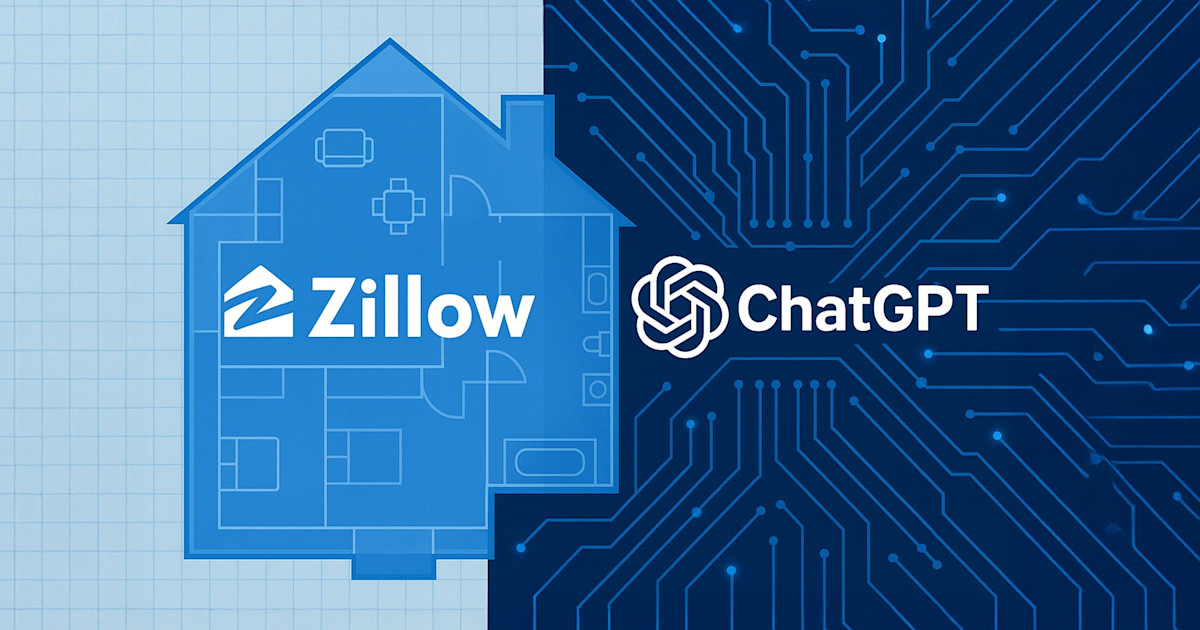Z
illow’s debut of a ChatGPT‑integrated app lets users search real‑estate listings through natural language dialogue. The feature, announced on October 6, adds a Zillow “widget” inside the AI chatbot, displaying property details and linking back to Zillow’s own site. Zillow claims the move was designed to “simplify the home journey” and to position the company at the forefront of generative‑AI adoption.
The launch sparked immediate debate over whether the integration breaches IDX (Internet Data Exchange) licensing rules that govern how multiple‑listing‑service (MLS) data may be displayed. IDX requires that any participant who shows MLS listings must retain “actual and apparent control” over the display, and that the data not be shared with unauthorized parties. Critics argue that by embedding Zillow’s data inside ChatGPT, the company is effectively giving a third‑party platform access to MLS content that should remain under broker control.
Leah Ingalsbe, EVP of MLS and technology for the Greater Springfield Board of Realtors, warned that the new technology forces MLSs to rethink data standards that were drafted before AI existed. “Licensing agreements differ, but this development offers plenty of food for thought on emerging technologies that were nonexistent when many of our terms of use were penned,” she wrote on LinkedIn.
A Texas agent, Danny Frank of JLA Realty and former Houston Association of Realtors chair, took a more confrontational stance. In a blog post and an interview with Real Estate News, he asserted that Zillow is violating IDX rules by sharing broker‑approved data with a platform that does not provide equal access to all participants. Frank filed a complaint with the Houston Association of Realtors, which said it was reviewing the matter.
The National Association of Realtors’ IDX policy states that all displays of MLS listings must be under the participant’s control. Victor Lund, co‑CEO of WAV Group, contended that Zillow’s license permits MLS data on Zillow.com and its mobile apps, but not on a separate domain such as ChatGPT. He argued that consumers using ChatGPT are effectively using Zillow as a tool inside another environment, which violates the control requirement. NAR has not formally ruled on the integration but urged MLSs to assess whether MLS data is being transmitted to an unauthorized party and whether the display meets local IDX rules. It also clarified that mobile‑app displays are permissible under current IDX policy.
Zillow has outlined its compliance steps. Errol Samuelson, chief industry development officer, said the company went through a “painstaking process” to align with MLS rules. Josh Weisberg, SVP of AI, noted that Zillow collaborated with OpenAI to ensure IDX data would not train the AI model. In its FAQ, Zillow explained that when a user prompts the app, ChatGPT forwards the request to Zillow, which returns a response that is displayed in the Zillow app; the data never flows back into ChatGPT itself. The FAQ also asserts that the Zillow app is built and operated by Zillow, thereby maintaining participant control.
Despite these assurances, a test by Real Estate News revealed that the app can export listing data. By asking for for‑sale homes in Orlando, FL priced between $0 and $400K, ChatGPT displayed a map of 100 listings. When prompted for the underlying data, the chatbot offered CSV and JSON files containing full details—address, price, beds, baths, square footage, lot size, latitude/longitude, home type, status, and Zillow URL. The data was sourced from the Zillow connector that powers the embedded widget. This capability raised concerns that third parties could harvest MLS data for commercial use or monitoring.
MLS responses varied. Some, like Bright MLS and California Regional MLS, declined to comment. Others, such as Stellar MLS, Georgia MLS, and NTREIS, said they were “discussing internally” or “still investigating” compliance. Canopy MLS in North Carolina stated that the Zillow app remains compliant with its IDX rules, though it offered no further detail. Lund noted that MLSs are likely silent because they are still trying to understand the new technology and the potential legal ramifications.
Legal experts caution that the industry is in a highly litigious period. Russ Cofano, co‑founder of Alloy Advisors and attorney, warned that MLSs may be wary of taking actions that could lead to litigation. He emphasized the need to address unintended consequences of such integrations to prevent misuse of MLS data. However, he also expressed hope that the app would encourage MLSs to engage with Zillow, learning from its innovation and potentially expanding access to authorized listing data through AI search and discovery.
The overarching debate centers on whether the current IDX framework, drafted at the turn of the century, can accommodate the rapid evolution of AI technologies. While Zillow insists it has maintained control and complied with licensing agreements, industry stakeholders remain divided. Some see the integration as a step toward broader consumer access to real‑estate information, while others view it as a breach of established data‑sharing norms.
The conversation continues as MLSs, brokers, and technology firms grapple with how to balance data ownership, consumer convenience, and regulatory compliance in an era where AI can surface vast amounts of property information in a conversational format.















